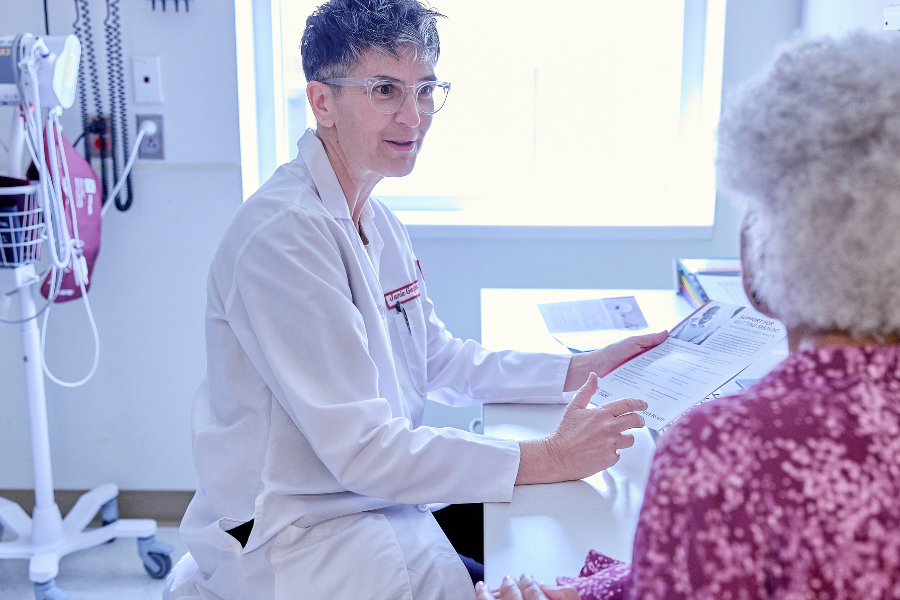Ten years ago, Dr. Kartik Shenoy, a pulmonologist with the Temple Lung Center, started seeing patients with severe, uncontrolled asthma who didn’t find relief from their current medications. These patients were also experiencing frequent asthma attacks and hospitalizations, dramatically reducing their quality of life.
In an effort to provide next-level care for severe asthma, Dr. Shenoy established a dedicated Severe Asthma Program to help patients breathe better. He's here to answer questions about his efforts to provide the best care for patients with severe asthma.
Q: How does the Temple Lung Center treatment approach help people with severe, uncontrolled asthma?
Dr. Shenoy: I've seen some patients who have been hospitalized multiple times for their asthma. Some have been on long-term steroids and have had to deal with weight gain. Other patients I've seen have had additional conditions that needed to be addressed to control their asthma, or needed to change their asthma therapy.
We take a team approach to treating patients who have asthma. Our asthma specialists are at the forefront of advanced asthma therapeutics to help patients improve their quality of life. Treatments available include:
- Biologics (infusions)
- Clinical trials
- Minimally invasive procedures
Once treated, patients are not only able to breathe better, they're able to do more. I'm always happy to see my patients getting back to their daily lives and interacting with their families, their kids or their grandkids. They’re able to participate in all the activities they want to do.
Q: Why should someone seek a second opinion for asthma?
Dr. Shenoy: It's important to get a second opinion from a pulmonologist when your symptoms continue, as you may not truly have asthma. It could be another disease that's playing a role or mimicking asthma.
With a confirmed asthma diagnosis, we have access to a full range of treatment options that factor in other medical conditions that could affect a person’s asthma. Those conditions include sinus disease, allergies, acid reflux and sleep apnea.
Q: How is treating underlying conditions an important part of effectively treating asthma?
Dr. Shenoy: Studies show that asthma control improves when the conditions commonly found in combination with asthma are also treated. That's why at Temple, physicians from a number of specialties work together to treat not just the asthma but also the other conditions that may be contributing to it. These specialists include:
- Speech therapists and ear, nose, and throat (ENT) doctors to help control upper airway disease
- Gastroenterologists and thoracic surgeons to help diagnose and treat reflux disease
- Sleep medicine specialists to manage sleep disorders associated with asthma
This level of coordinated care is essential for helping patients better control their asthma.
Q: What is your personal patient care philosophy?
Dr. Shenoy: A patient needs a doctor who listens. When I sit next to a patient, I ask them how they feel. I ask them what they want to do with their life. I ask what’s wrong with their life right now — and how can I improve that? This is what I do every single day. Their goals become my goals.
If you have asthma that is worsening, call 800-TEMPLE-MED (800-836-7536) for an appointment with a pulmonologist at the Temple Lung Center.

